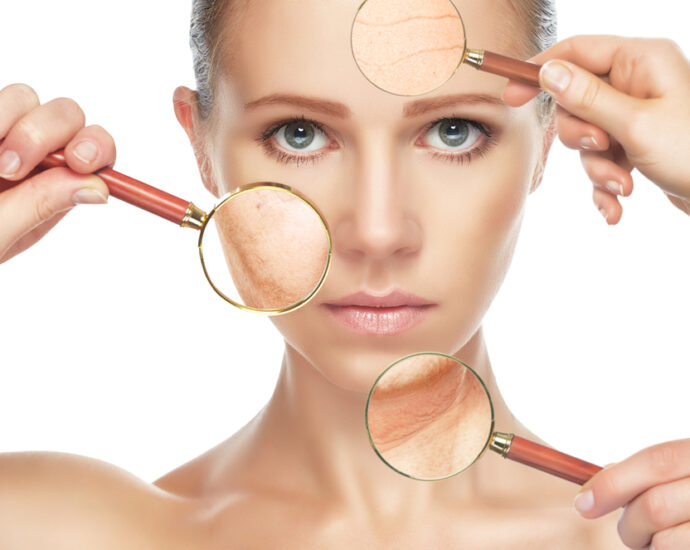The connection between what we eat and the health of our skin is profound. While skincare products play a significant role in maintaining skin health, nutrition also plays a crucial role. After all, the skin is our body’s largest organ, and its condition reflects our overall health and well-being. By nourishing our bodies with the right nutrients, we can promote healthy, radiant skin from the inside out.
Page Contents
Key Nutrients for Healthy Skin
- Vitamin A: Often hailed as the “skin vitamin,” vitamin A plays a vital role in skin cell turnover and repair. It helps maintain the integrity of the skin’s outermost layer, known as the epidermis, while also supporting the production of collagen and elastin, which are essential for skin elasticity and firmness.
- Vitamin C: Another powerhouse nutrient for skin health, vitamin C is a potent antioxidant that helps protect the skin from oxidative stress caused by environmental factors like UV radiation and pollution. Additionally, vitamin C is crucial for collagen synthesis, making it essential for maintaining youthful-looking skin.
- Vitamin E: Like vitamin C, vitamin E acts as an antioxidant, scavenging free radicals that can damage skin cells and accelerate aging. It also helps protect the skin from UV damage and promotes skin healing and repair.
- Omega-3 Fatty Acids: These healthy fats are renowned for their anti-inflammatory properties, which can help reduce redness, inflammation, and irritation in the skin. Omega-3s also play a role in maintaining skin hydration and suppleness, contributing to a smoother complexion.
- Zinc: Essential for immune function and wound healing, zinc also plays a role in controlling sebum production and reducing acne breakouts. It helps regulate cell turnover in the skin and promotes the healing of blemishes and scars.
- Selenium: This trace mineral is a potent antioxidant that helps protect the skin from UV damage and oxidative stress. Selenium also supports skin elasticity and may help reduce the risk of skin cancer.
The Impact of Hydration on Skin
In addition to nourishing our bodies with essential nutrients, staying hydrated is crucial for maintaining healthy skin. Adequate hydration helps keep the skin moisturized, plump, and resilient. When we’re dehydrated, our skin can become dry, flaky, and prone to irritation. Drinking plenty of water throughout the day helps maintain optimal skin hydration levels and supports overall skin health.
Foods That Promote Skin Health
Incorporating a variety of nutrient-rich foods into your diet can provide your skin with the essential vitamins, minerals, and antioxidants it needs to thrive.
- Fruits and Vegetables: Berries, citrus fruits, leafy greens, and carrots are rich in vitamins A, C, and E, as well as antioxidants that protect against skin damage.
- Fatty Fish: Salmon, mackerel, and sardines are excellent sources of omega-3 fatty acids, which help maintain skin hydration and reduce inflammation.
- Nuts and Seeds: Almonds, walnuts, and flaxseeds are packed with vitamin E and healthy fats that nourish the skin and protect against oxidative stress.
- Whole Grains: Oats, quinoa, and brown rice provide essential nutrients like zinc and selenium, as well as fiber that supports overall skin health.
- Lean Proteins: Chicken, turkey, and tofu are sources of protein that support collagen synthesis and promote skin repair and renewal.
- Dairy or Dairy Alternatives: Yogurt and fortified plant-based milks contain probiotics and vitamins that contribute to skin health and hydration.
The Role of Antioxidants in Skin Protection
Antioxidants play a crucial role in protecting the skin from damage caused by free radicals, which can accelerate aging and contribute to various skin concerns. Incorporating antioxidant-rich foods into your diet helps neutralize free radicals and defend against environmental stressors that can harm the skin. Some of the best food sources of antioxidants include fruits, vegetables, nuts, seeds, and dark chocolate.
The Impact of Dietary Habits on Common Skin Conditions
Certain dietary habits can influence the development and severity of common skin conditions such as acne, eczema, and aging. For example, a diet high in refined sugars and processed foods may exacerbate acne by increasing sebum production and inflammation. On the other hand, a diet rich in whole foods, fruits, vegetables, and healthy fats can help support clear, glowing skin. It’s essential to pay attention to how your diet affects your skin and make adjustments accordingly.
Conclusion: Emphasizing the Importance of Nutrition for Healthy, Radiant Skin
In conclusion, nutrition plays a vital role in maintaining healthy, radiant skin. By prioritizing a balanced diet rich in essential nutrients, antioxidants, and hydration, you can support your skin’s health and appearance from the inside out. Remember to eat a variety of nutrient-dense foods, stay hydrated, and pay attention to how your dietary habits affect your skin. By nourishing your body with the right nutrients, you can achieve and maintain beautiful, glowing skin for years to come.
READ MORE: Skin Care: When To See A Dermatologist
Sources:
https://healthsurgeon.com/nutrition/17-best-foods-for-healthy-skin/
https://www.ncbi.nlm.nih.gov/pmc/articles/PMC9324272/#:~:text=Vitamin%20A%20is%20a%20fat,active%20metabolites%20of%20vitamin%20A.
https://www.sportskeeda.com/health-and-fitness/selenium-benefits-skin-health
